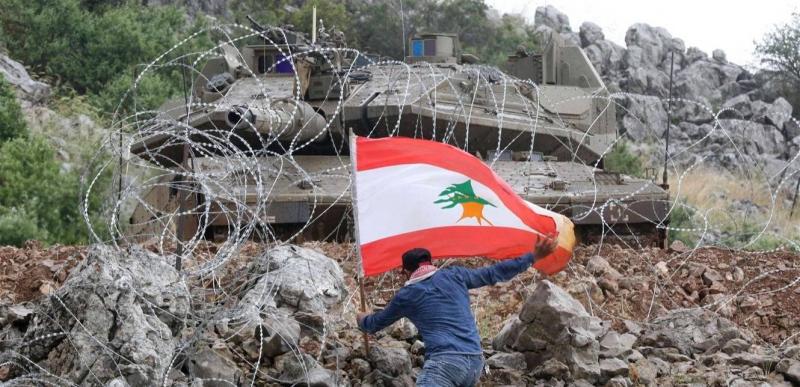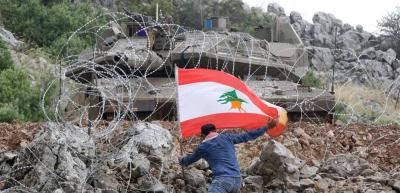Between the wars of the summer of 2006 and the "Support for Gaza" war in 2023 and 2024, there is a common denominator and differences. The common denominator is that "Hezbollah" instigated both wars with Israel. In 2006, they kidnapped Israeli soldiers and killed them, or they died in a confrontation that preceded the holding of these soldiers' bodies. On October 8, 2023, the party decided, at Iran's request, to open a front in southern Lebanon without any consultations with any other party in Lebanon, including the government headed by Najib Mikati.
Do the outcomes of the 2006 war, which were primarily aimed at covering up existing realities, differ from the outcomes of the "Support for Gaza" war, which is fundamentally about an Iranian desire to cement control over Lebanon? In this question lie the differences: the summer 2006 war is not like the "Support for Gaza" war, and Iran, which believes it can repeat an 18-year experience, may not necessarily be able to achieve a new victory over Lebanon, not Israel, just as happened in the summer of 2006, in complete collusion with the Hebrew state.
As we await the end of the Gaza war, which will not end anytime soon and how it will end is unknown, Lebanon, ruled by "Hezbollah," which is akin to Iran, chose to tie itself to the unknown, placing its fate in the wind. The current regional and international situations do not allow for a linkage of the ceasefire in the south with the ceasefire in Gaza. Statements made by Hassan Nasrallah, the party's secretary-general, and other officials seem disconnected from reality, particularly regarding the notion that everything will return to the status quo before October 8 once the Gaza war stops.
This is mainly because Israel, which appears determined to continue the war in Gaza, rejects the theory of the unity of fronts. It particularly refuses the insistence of the "Islamic Republic" on keeping the Lebanese southern front open as long as Gaza remains open. Sooner or later, Israel will have to address the serious existential threat posed by "Hezbollah," with its missiles, drones, and tunnels, coming from Lebanon, regardless of whether Benjamin Netanyahu remains as prime minister or departs.
There are Israeli calculations that cannot align with Iranian calculations, contrary to the situation in 2006 when Israel accepted UN Security Council Resolution 1701. Israel accepted the resolution even though it was fully aware that "Hezbollah" would not implement it but would instead use it to seize control over the Lebanese interior. This indeed happened. In 2006, Israel had no problem with "Hezbollah's" control over Lebanon but rather with the "Islamic Republic's" control over the country.
The current concern lies in the possibility that Lebanon may fall victim to the disparity in calculations between the Israeli and Iranian sides at a time when Iranians believe they can restore the experience of the summer 2006 war. Notably, in the repeated recent statements from officials within "Hezbollah," there is an insistence that if the Lebanese enjoy a normal life, it is thanks to the "resistance." More clearly, the party is preparing for the post-Gaza war phase to once again pounce on Lebanon and seize the gains achieved by "the resistance" by opening the southern front.
The party seeks, through a simplistic approach to events, to claim credit for enabling Lebanese citizens to enjoy a normal life, which includes going to nightclubs, pools, cafes, restaurants, and concerts in the summer of 2024. In 2024, "Hezbollah" intends to claim the spoils of a war it instigated, a war that displaced a hundred thousand southerners and destroyed several villages. This war was unnecessary except for the Iranian desire to send a message to the United States that it holds the keys to expanding the Gaza war or not.
There is no place where the party can claim the spoils of the "Support for Gaza" war except in Lebanon itself. Is this possible or not? Only time will reveal whether this project is feasible in light of significant changes in the balance of power in the region and the world. There is no sane Arab who has learned from past experiences willing to engage in a war with Israel on a timeline dictated by "Hamas" or Iran.
What cannot be ignored at any time is that the "Al-Aqsa Flood" attack launched by "Hamas" from Gaza on October 7 changed Israel completely. This is not related to Netanyahu's person and his boundless brutality but involves a fundamental change that has occurred in Israel and Israeli society, which must now think differently. Such a different way of thinking means asking questions about how to deal with southern Lebanon, which has become a source of a serious threat in light of over 60,000 Israelis who have been out of their homes for more than nine months.
In light of this deep change in Israel, it seems reasonable to conclude that the "Support for Gaza" war today is something and the summer 2006 war is another. Iran has led Lebanon into a predicament that requires thinking about how to escape from it, rather than the party tempting the Lebanese with the notion that it allows them to enjoy a culture of life... and that they will have to pay the price for that later!




